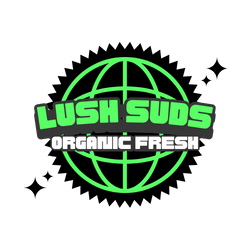In the ever-increasing search for products that align with a healthier and more sustainable lifestyle, the debate surrounding organic versus non-organic natural soaps has gained considerable attention. As consumers, it is crucial to discern the subtle yet significant differences between these two types of soaps, particularly when it comes to their ingredients and production methods. By exploring these distinctions, we can make informed choices that not only benefit ourselves but also contribute to a greener and more environmentally conscious world.
Benefits of Organic Natural Soaps
Reduces skin irritation
One of the key benefits of using organic natural soaps is that they can help reduce skin irritation. Organic soaps are typically made from natural ingredients that are gentle on the skin and less likely to cause irritation or allergic reactions. Many commercial soaps contain harsh chemicals and synthetic fragrances that can strip the skin of its natural oils and lead to dryness, redness, and itchiness. Organic natural soaps, on the other hand, are formulated with ingredients like essential oils, herbs, and plant extracts that have soothing and calming properties. These gentle ingredients can help nourish the skin and reduce inflammation, making them ideal for individuals with sensitive or easily irritated skin.
Gentle on sensitive skin
For individuals with sensitive skin, finding the right soap can be a challenge. Many non-organic natural soaps contain artificial colors, fragrances, and other additives that can trigger allergies and irritate sensitive skin. However, organic natural soaps are formulated with gentle ingredients that are less likely to cause adverse reactions. These soaps are often free from harsh chemicals like sulfates, parabens, and synthetic dyes, all of which can be potential irritants. By switching to organic natural soaps, individuals with sensitive skin can enjoy a gentle and soothing cleansing experience without worrying about flare-ups or discomfort.
No harmful chemicals
One of the main advantages of organic natural soaps is that they do not contain harmful chemicals. Unlike many non-organic natural soaps, organic soaps are made using strictly natural ingredients, often derived from plants and herbs. This means that they do not contain harsh chemicals, synthetic preservatives, or artificial additives that can be detrimental to both the skin and the environment. By using organic natural soaps, you can avoid exposing your skin to potentially harmful substances and support a more natural and sustainable approach to personal care.
Environmentally-friendly production
Another significant benefit of organic natural soaps is that they are produced in an environmentally-friendly manner. Organic soap manufacturers prioritize sustainable sourcing and production practices to minimize their impact on the environment. They often use organic farming methods, which avoid the use of synthetic pesticides and fertilizers that can harm ecosystems and contaminate water sources. Additionally, these manufacturers are committed to reducing waste and packaging their products in eco-friendly materials. By choosing organic natural soaps, you can contribute to a cleaner and healthier planet by supporting companies that prioritize sustainability.
Drawbacks of Non-Organic Natural Soaps
Potential skin reactions
One drawback of non-organic natural soaps is the potential for skin reactions. While these soaps may claim to be natural, they often contain synthetic additives, fragrances, and colorants that can cause adverse reactions in some individuals. These additives are commonly used to enhance the appearance and scent of the soap but can be irritating to the skin. Individuals with sensitive or allergy-prone skin should exercise caution when using non-organic natural soaps and carefully read the ingredient list to identify any potential irritants.
Possible harm to the environment
Non-organic natural soaps can also contribute to environmental harm. Many of these soaps contain synthetic ingredients derived from petroleum, which is an unsustainable and non-renewable resource. The extraction and processing of petroleum-based ingredients can have a detrimental impact on ecosystems and contribute to air and water pollution. Additionally, the production and disposal of non-organic natural soaps may involve the use of non-recyclable or non-biodegradable packaging materials, further contributing to waste and pollution. It is important to consider the environmental implications of using non-organic natural soaps and opt for more sustainable alternatives whenever possible.
Toxic chemicals
Unlike organic natural soaps, non-organic natural soaps may contain toxic chemicals. These chemicals can include sulfates, parabens, phthalates, and artificial fragrances, all of which have been linked to various health concerns. Sulfates, for example, are known to strip the skin of its natural oils and disrupt the skin barrier function, leading to dryness and irritation. Parabens and phthalates, on the other hand, are potential endocrine disruptors that have been associated with hormonal imbalances and reproductive issues. By using non-organic natural soaps that contain these chemicals, you may unknowingly expose yourself to potential health risks.
Ingredient Comparison
Organic natural soap ingredients
Organic natural soaps are formulated with a carefully selected array of natural ingredients. These ingredients often include plant oils, such as coconut oil, olive oil, and shea butter, which provide moisturizing properties and help to keep the skin hydrated. The use of essential oils, such as lavender and tea tree oil, adds fragrance and therapeutic benefits. Many organic soaps also incorporate herbal extracts and botanicals, like chamomile, aloe vera, and calendula, which have soothing and healing properties. These natural ingredients work synergistically to cleanse and nourish the skin, without the need for harsh chemicals or artificial additives.
Non-organic natural soap ingredients
Non-organic natural soaps may also contain natural ingredients, but they are often supplemented with synthetic additives and fragrances. These additives are used to enhance the scent, color, and texture of the soap, but they may not offer any additional benefits to the skin. Non-organic natural soaps may include ingredients like artificial fragrances, dyes, and cosmetic-grade chemicals that can potentially irritate the skin. It is important to carefully review the ingredient list of non-organic natural soaps to ensure that they meet your desired standards for purity and safety.
(Continued in next comment)
